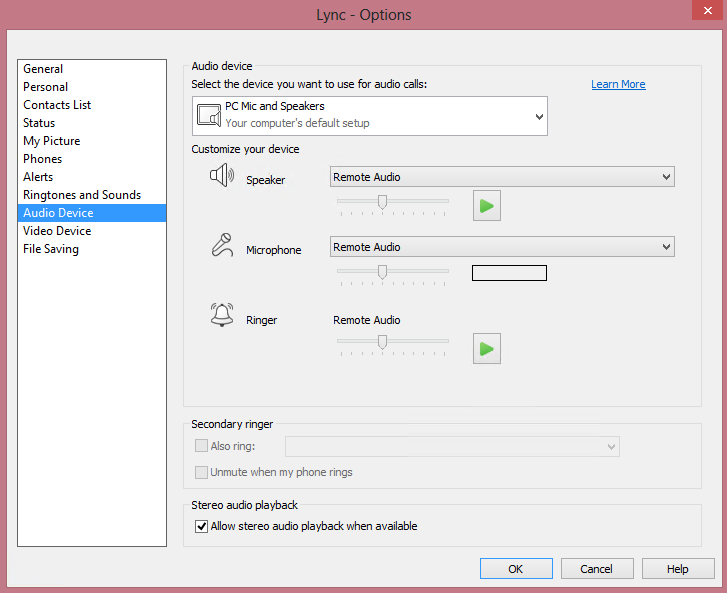

- HOW DOES LYNC FOR MAC CONNECT HOW TO
- HOW DOES LYNC FOR MAC CONNECT FULL
- HOW DOES LYNC FOR MAC CONNECT WINDOWS 8.1
HOW DOES LYNC FOR MAC CONNECT FULL
Yes, I know full well that Lync's Mac client is complete garbage right now. Not only does Lync carry functional advantages over Skype in numerous valuable aspects, but it's also wrapped in an arguably cleaner UI, and doesn't rely on closed protocols/standards nearly exclusively like Skype does. Peter Bright of ArsTechnica pitched the very question then that got me thinking: why do we need Skype still when Lync already exists? Peter's pitch for getting rid of Skype is quite valid in numerous areas. In the end, it's a branding message that is turning into a crockpot of use cases, with no proper delineation either way anymore. Likewise, in contrast, I'm told that Lync is meant for work, but Microsoft is busily chipping away at bridging the Lync-Skype ecosystems for full IM/voice/video chat interoperability.
HOW DOES LYNC FOR MAC CONNECT HOW TO
Microsoft calls Skype the VoIP client for personal needs, but then offers dedicated landing pages on how to use Skype in your business.
HOW DOES LYNC FOR MAC CONNECT WINDOWS 8.1
And the same reason why Windows 8.1 and Windows 8.1 Pro/Enterprise exist.īut you look at Lync and Skype, and the lines are becoming very, very gray. It's why there's Office 365 Home Premium and Office 365 for Business. It's why we have a OneDrive (personal) and OneDrive for Business. Keeping two distinct brands alive that service relatively the same end purpose is nonsensical as time goes on. The sole acceptable argument in favor of keeping Skype alive, being that there should be a "consumer" play in the form of Skype and "business" play by Lync, is starting to lose headway in my eyes the further Microsoft keeps consolidating services into Office 365. As I'll show, Lync indeed does everything Skype does, and brings a lot more to the table as well. It's fair to say that there is little reason that two ecosystems need to exist for the long run. The company is working diligently on completing the Skype-Lync network integration, but this only addresses connectivity between the two platforms. Does it make practical sense to continue pushing two different, yet interoperable, VoIP platforms? I can't imagine I'm the only one who has quit using Skype because Lync fully supersedes everything Skype did.īoth the Lync and Skype clients and related ecosystems exist today, with little talk from Microsoft on what the long term future holds. It's not perfect, but then again, Skype and Hangouts aren't shining IM platforms, either.īut there's a ballooning elephant in the room which Microsoft doesn't want to tackle head on succinctly. After investing many hours in Hangouts and Skype alike, I won't lie: once you go Lync, there's no going back. Lync has been a refreshing and very capable internal communications client that puts Google Hangouts to shame, and also trounces Skype in many areas that most people don't know about. This is especially true for me because I've had the chance to get knee deep into Lync since we ditched Google Apps in favor of Office 365 last year. It's a very intriguing question that led me to think a bit deeper about this admitted two-face coming out of Microsoft.


In my leisurely net browsing, I came across an interesting conundrum raised in an article I stumbled upon at ArsTechnica by Peter Bright titled simply " Lync 2013 is everything that Skype should be. As we enjoy the restive Memorial Day weekend here in the States, I finally have a chance to relax from the hustle and bustle of tech consulting life.


 0 kommentar(er)
0 kommentar(er)
